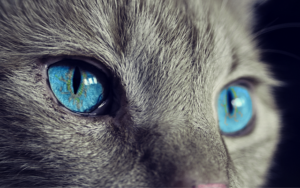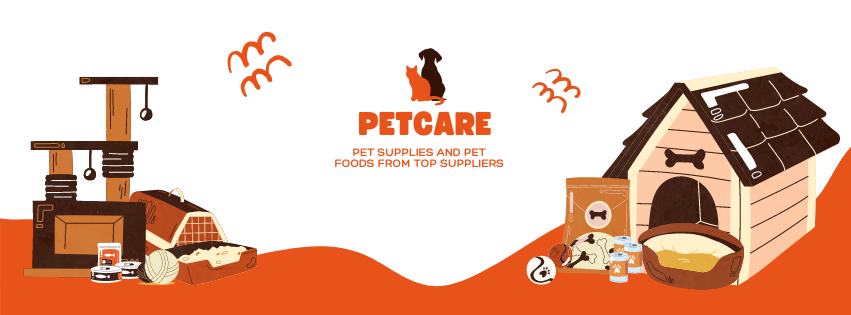When you discover that your once well-behaved cat has chosen to use your rug or couch as their new “litter box,” it can be disconcerting and frustrating. The odors of urine and feces are unpleasant, and the potential for fabric stains adds to the stress. However, it’s crucial to prioritize understanding the underlying cause of this sudden change in behavior over resorting to punishment. Reacting with punishment can exacerbate stress and confusion for your cat, making the situation more challenging to resolve. Instead, approaching the issue with empathy and curiosity allows you to identify and address the root cause effectively, ultimately leading to a quicker return to normalcy for both you and your feline companion.
In many cases, inappropriate elimination is a signal that something is amiss in your cat’s life, whether it’s a medical problem, environmental stressor, or dissatisfaction with the litter box setup. By observing your cat’s behavior, consulting with a veterinarian to rule out health issues, and making thoughtful adjustments to their environment and litter box conditions, you can work together to restore proper litter box habits and maintain a harmonious and clean-living space. Prioritizing your cat’s well-being and taking a proactive, problem-solving approach can lead to a positive resolution and strengthen the bond between you and your furry friend.
Stress May Be the Problem
Stress is a natural physiological response that both humans and animals, including cats, experience when faced with challenging or potentially dangerous situations. In moderate amounts, stress can actually be beneficial, as it serves as an evolutionary survival mechanism. When your cat encounters a potential threat, their stress response triggers a cascade of physiological changes, preparing them for a fight-or-flight response. This heightened state of alertness can help your cat make quick decisions to avoid trouble or escape from a dangerous situation, which is essential for their survival.
However, it’s important to note that stress levels should ideally return to baseline once the immediate threat or stressor has passed. In the wild, this built-in stress response helps animals navigate challenging situations and then return to a state of calm when the danger has subsided. In a domestic setting, it’s crucial for cat owners to be attuned to their pet’s stress levels and help create an environment where stressors are minimized and manageable. Chronic or excessive stress can lead to a range of health and behavioral issues, so understanding and addressing the sources of stress in your cat’s life is essential for their overall well-being and happiness.
When your cat’s stress response is consistently triggered, it can lead to undesirable behaviors such as urinating or defecating in inappropriate locations. It’s essential to recognize that these behaviors are often your cat’s way of communicating their discomfort or anxiety. Rather than reacting solely to the litter box issue, it’s beneficial to take a step back and analyze the root causes of your cat’s stress. Identifying and addressing these underlying stressors not only resolves the litter box problem but also contributes to the overall well-being and contentment of both you and your feline companion.
Cats are not only highly intelligent but also incredibly sensitive creatures. They thrive on routine and predictability, and even minor disruptions in their environment or daily routine can trigger stress. Changes such as a new pet, a move, alterations in their living space, or shifts in household dynamics can all contribute to stress in cats. Recognizing these sources of stress and proactively working to minimize their impact can lead to a more relaxed and harmonious environment for your cat. By focusing on understanding and catering to your cat’s unique needs and sensitivities, you can foster a happier, healthier relationship with your beloved feline friend and help them maintain proper litter box habits.
Understanding and addressing your cat’s stress-induced litter box issues involves a multifaceted approach that prioritizes their physical and emotional well-being. When your cat consistently exhibits undesirable behaviors like urinating or defecating in inappropriate locations, it’s essential to interpret these actions as their way of communicating their discomfort or anxiety. Instead of reacting solely to the litter box problem, it’s highly beneficial to step back and delve into the root causes of your cat’s stress, as this approach can lead to a holistic resolution of the issue and contribute to the overall happiness of both you and your feline companion.
Cats are remarkably intelligent and sensitive animals, and their behavior often mirrors their emotional state. They thrive in an environment characterized by routine and predictability, which can be disrupted by even minor changes in their surroundings or daily routines. Factors such as introducing a new pet, relocating to a new home, making alterations in their living space, or experiencing shifts in household dynamics can all contribute to stress in cats. Recognizing these potential stressors and taking proactive steps to mitigate their impact is crucial in creating a more relaxed and harmonious living environment for your cat. By dedicating time and effort to understanding and accommodating your cat’s unique needs and sensitivities, you can cultivate a happier and healthier relationship with your cherished feline companion while simultaneously helping them maintain proper litter box habits.
Helping Your Cat Adjust
The most effective approach to guide your cat back to regular litter box use revolves around minimizing stress in their environment. Reducing stressors can significantly contribute to resolving litter box issues. Consider employing pheromone products designed to calm your cat, such as feline facial pheromone sprays or diffusers. These products can create a soothing atmosphere and help alleviate anxiety. Additionally, providing plenty of attention and reassurance to your cat is paramount. Spend quality time with them, engage in interactive play, and offer affection to strengthen your bond and create a sense of security.
Positive reinforcement plays a vital role in reestablishing proper litter box habits. When your cat uses the litter box correctly, acknowledge and reward their behavior with treats and praise. This positive association helps reinforce the desired behavior and encourages your cat to continue using the litter box as their designated toileting area. It’s essential to create an environment where your cat feels safe and appreciated, as this fosters a positive relationship and facilitates the resolution of litter box issues. By combining stress reduction techniques, attention, and positive reinforcement, you can guide your cat back toward proper litter box habits while nurturing a happier and healthier bond between you and your feline friend.
Conclusion
Addressing and resolving litter box issues in cats is a multifaceted endeavor that requires patience, understanding, and a holistic approach. Recognizing that inappropriate elimination is often a manifestation of stress or dissatisfaction is the first step toward finding a solution. Cats, being highly sensitive and intelligent creatures, thrive in a predictable and comfortable environment, and any disruptions to their routine can trigger stress. By identifying and mitigating stressors, such as changes in the household or environmental factors, cat owners can help their feline companions return to proper litter box habits.
Moreover, promoting a positive and supportive atmosphere through attention, affection, and positive reinforcement is equally crucial. By rewarding and praising desired behavior, cat owners can strengthen their bond with their cats and encourage them to continue using the litter box correctly. In the end, it’s important to remember that addressing litter box issues is not just about cleanliness but also about the physical and emotional well-being of our feline companions. By prioritizing their comfort and happiness, we create a harmonious living environment and a strong, enduring relationship with our beloved cats.
FAQs (Frequently Asked Questions)
Q1. How often should I feed my adult cat?
A1. Most adult cats should be fed two meals a day, but specific feeding schedules can vary based on your cat’s age, health, and dietary needs. Consult your veterinarian for personalized guidance.
Q2. What should I do if my cat suddenly stops eating?
A2. If your cat refuses to eat for more than 24 hours, consult your veterinarian immediately, as it could indicate an underlying medical issue.
Q3. How can I prevent my cat from scratching furniture?
A3. Providing scratching posts, regularly trimming your cat’s claws, and using deterrents like double-sided tape or soft nail caps can help protect your furniture.
Q4. Is it safe to give my cat milk?
A4. While many cats are lactose intolerant, leading to digestive upset, it’s safer to offer lactose-free cat milk if you want to provide a treat. Water is the best choice for hydration.
Q5. How often should I clean my cat’s litter box?
A5. It’s ideal to scoop waste from the litter box daily and replace the litter entirely once a week to keep it clean and odor-free.
Q6. Can I give my cat human medications for pain or illness?
A6. Never give your cat human medications without veterinary guidance, as some can be toxic to cats. Always consult your vet for proper treatment.
Q7. How do I introduce a new cat to my existing cat(s)?
A7. Gradual introductions in separate rooms, scent swapping, and supervised interactions can help ease the transition and prevent conflicts between cats.
Q8. What vaccines does my cat need and how often?
A8. Core vaccines like rabies and FVRCP are recommended for most cats. The frequency of vaccinations can vary, so consult your vet for a personalized vaccination schedule.
Q9. How can I help my overweight cat lose weight?
A9. Consult your veterinarian for a tailored weight loss plan, which may include portion control, a balanced diet, and increased exercise.
Q10. What are common signs of illness in cats?
A10. Common signs of illness include changes in appetite, behavior, litter box habits, vomiting, diarrhea, lethargy, and respiratory issues. If you notice any of these signs, contact your vet promptly for evaluation and diagnosis.













































